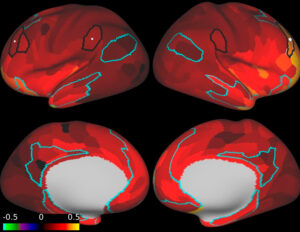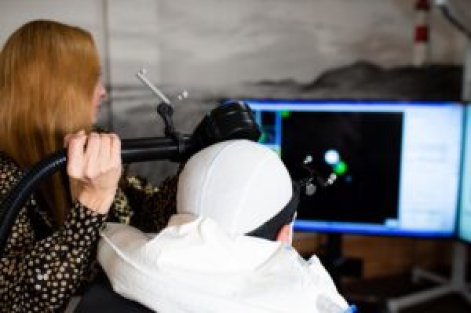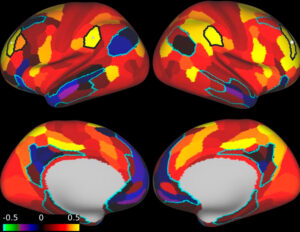
Contact Us

Post-Traumatic Stress Disorder (PTSD) disrupts the brain’s ability to process trauma, leaving lasting effects on mental health and daily life. Traumatic experiences, such as accidents, assaults, or wartime events, can overwhelm the brain, leading to symptoms like persistent nightmares, emotional distress, and avoidance of triggers. These symptoms often interfere with sleep, work, relationships, and overall well-being.
Though PTSD affects about 7% of the general population and up to 20% of military veterans, effective treatments like TMS therapy for PTSD are available to help restore mental wellness and improve quality of life.
At Neurotherapeutix, our advanced TMS therapy for PTSD offers a targeted, non-invasive approach to restore brain function and help patients reclaim their lives.
Contact us directly to schedule a consultation or continue reading to learn more.

PTSD is a mental health condition triggered by experiencing or witnessing traumatic events. It affects how the brain processes memories and emotions, often leading to distressing symptoms.
PTSD disrupts normal brain function, particularly in areas responsible for regulating fear and memory, causing individuals to relive their trauma or avoid triggers. It can impact every aspect of life, from sleep and concentration to relationships and work performance.
Common causes of PTSD include accidents, physical or sexual assaults, natural disasters, or violent situations. Military personnel and veterans frequently experience PTSD due to exposure to intense wartime violence.
Trauma may stem from a single life-altering event or accumulate over time through ongoing hardships, such as abusive relationships or adverse living conditions.
While everyone experiences stress at times, PTSD symptoms are distinct and often severe, typically falling into four key categories:
If you or someone you know is experiencing these symptoms, seeking help is important. Effective treatments like TMS treatment for PTSD can offer relief and improve overall mental health.
PTSD disrupts normal brain function, particularly in the prefrontal cortex, where decreased connectivity often occurs. This impairs the brain’s ability to regulate emotions and process traumatic memories. Neurotherapeutix leverages advanced functional MRI-guided transcranial magnetic stimulation (fMRI-guided TMS) to target these disruptions, restoring neuroplasticity and brain function precisely.

If you are experiencing persistent symptoms such as recurring unwanted thoughts, flashbacks, or emotional distress linked to a traumatic event, it’s essential to consult a mental health professional. These symptoms can significantly impact daily life and may indicate PTSD.
A standard psychiatric consultation includes a thorough review of your symptoms, personal history, and the challenges you face. At Neurotherapeutix, we take diagnosis a step further with our advanced fMRI technology. Unlike traditional diagnostic methods, an fMRI scan provides a detailed map of brain activity, allowing us to identify specific neural networks affected by PTSD.
This innovative approach helps pinpoint impaired or dysfunctional brain function areas, enabling us to design personalized treatment plans tailored to your unique needs. By leveraging the latest research and technology, Neurotherapeutix offers a precise and comprehensive path to diagnosis and care.
A variety of approaches can help individuals manage PTSD symptoms and improve their quality of life:
Combining these methods with innovative treatments like TMS therapy for PTSD can significantly enhance outcomes by addressing the root neurological causes.
Standard TMS therapy has proven effective in alleviating PTSD symptoms for many individuals. However, because PTSD affects different neural networks in unique ways, a more targeted approach can significantly enhance treatment outcomes. At Neurotherapeutix, we provide precisely that.
Our specialized fMRI-guided TMS therapy is designed to target the specific brain networks disrupted by PTSD. We use leading-edge functional MRI technology during the initial appointment to create a detailed map of the patient’s brain activity. This mapping identifies abnormal neural activity and highlights the areas most affected by PTSD.
Using this data, we develop a fully personalized treatment plan, precisely directing TMS to the impaired neural pathways. Throughout several sessions, we closely monitor progress and adjust the treatment as necessary to ensure optimal results.
Many patients begin to experience significant relief from intrusive thoughts and other PTSD symptoms within weeks. Compared to pharmaceutical treatments, TMS therapy for PTSD offers a more effective, non-invasive solution with minimal side effects, making it a leading choice for lasting recovery.
Neurotherapeutix is the only clinic in the United States offering fMRI-guided TMS therapy for PTSD. Our unique approach ensures precision and effectiveness, backed by patented technology and expertise from world-renowned doctors.
Conveniently located on Manhattan’s Upper East Side, we are committed to delivering compassionate, patient-centered care.
Take the first step toward reclaiming your life with personalized TMS therapy for PTSD at Neurotherapeutix. Using advanced fMRI technology, we create a detailed brain map to identify the specific neural networks affected by PTSD.
With us, many patients experience noticeable relief from PTSD symptoms, including reduced intrusive thoughts and improved emotional regulation, within just a few weeks.
Don’t wait to take back control of your mental health. Contact us today or request an appointment online to begin your journey to healing with innovative PTSD treatment in NYC.

Yes. Clinical studies and patient experiences demonstrate the efficacy of TMS in reducing PTSD symptoms.


Most patients undergo sessions over several weeks, with noticeable improvements often seen within the first few weeks.


Yes. TMS is a non-invasive treatment with minimal side effects, making it a safe alternative to medication-based therapies.

Call us at (917) 388-3090 or click to request a regular or telehealth appointment.
Neurotherapeutix
171 East 74th Street, Unit 1-1 New York, NY 10021

Neurotherapeutix is the leading clinic for functional imaging guided transcranial magnetic stimulation (TMS), a safe, innovative, and non-invasive methodology for treating a wide range of acute and chronic mental disorders and brain injuries. Our advanced fMRI technology allows us to map the brain for the… Learn More »
By: Neurotherapeutix NYC
Reviewed By: Marta Moreno, Ph.D
Published: March 24, 2023
Last Reviewed: September 27, 2024
QUICK INQUIRY
Contact us to get an estimate for your medical services requirements. You can fill in the form to specify your medical requirements or you can call us directly.